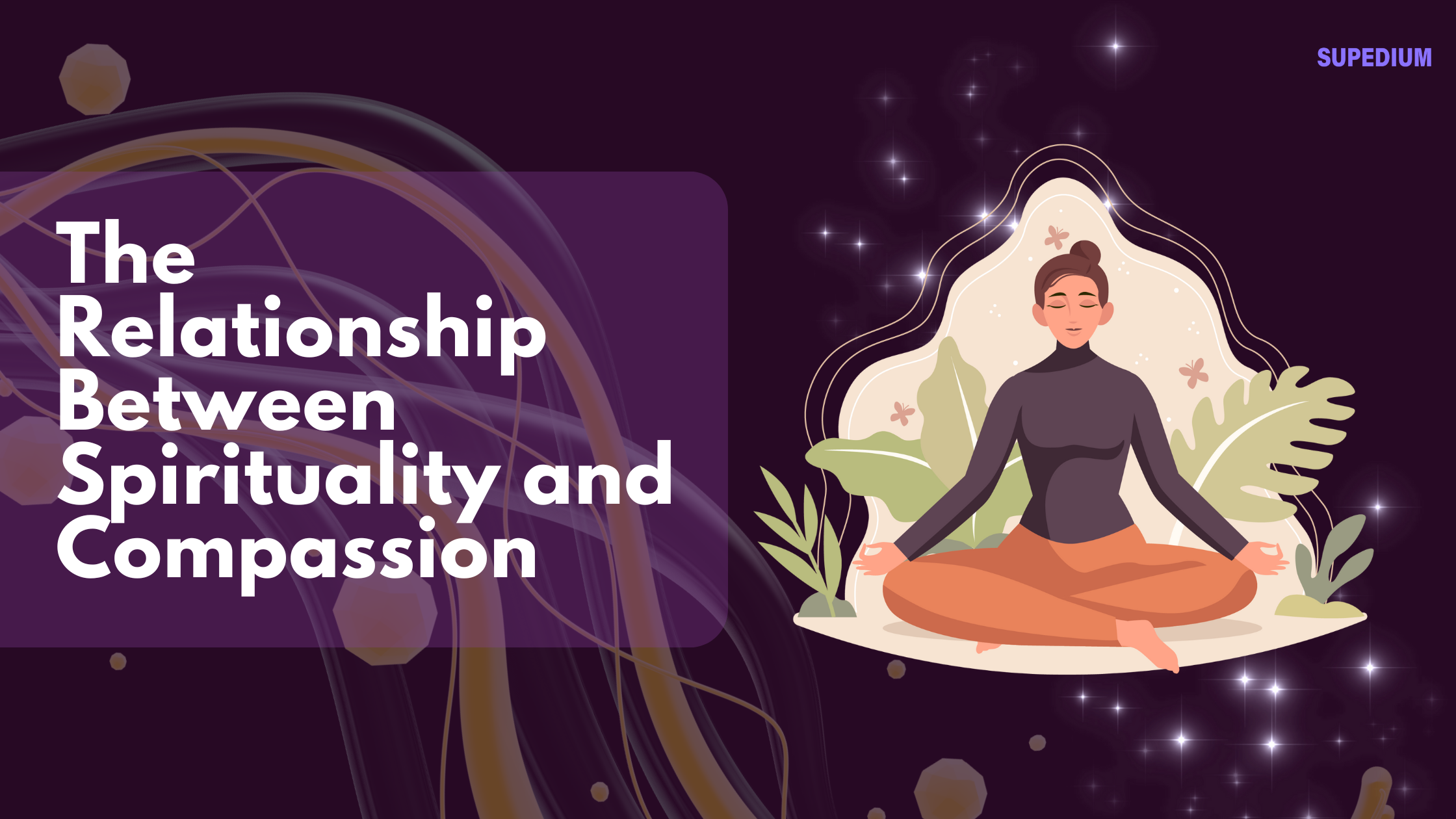Table of Contents
![]()
Introduction
Spirituality and compassion are deeply interconnected concepts that have been explored across various traditions, philosophies, and scientific studies. While spirituality is often associated with a sense of connection to something greater than oneself, compassion involves an empathetic response to the suffering of others. Understanding how these concepts interact can provide insights into personal development, social dynamics, and even scientific inquiry.
Theoretical Foundations
Historical Perspectives
Throughout history, different spiritual traditions have emphasized the importance of compassion. In Buddhism, compassion is central to the practice of the “Bodhisattva,” an enlightened being dedicated to alleviating the suffering of others. The concept of “Karuna,” or compassion, is cultivated through meditation and mindfulness practices aimed at developing a deep sense of empathy.
In Christianity, compassion is a fundamental aspect of Jesus’ teachings. Biblical parables, such as the Good Samaritan, illustrate the importance of loving and helping others, regardless of their background or circumstances. Compassion is seen as a reflection of God’s love and a key component of Christian ethics.
Hinduism also incorporates compassion through the principle of “Ahimsa,” or non-violence, which extends to all living beings. Compassion is viewed in the context of karma and dharma, emphasizing that one’s actions should be guided by kindness and respect towards others.
Indigenous spiritualities often present a holistic view of compassion, integrating it into community life and environmental stewardship. These traditions typically emphasize a deep connection with nature and each other, fostering an innate sense of empathy and responsibility.
Psychological and Neurological Insights
From a psychological perspective, compassion involves recognizing the suffering of others and feeling motivated to alleviate it. It is closely related to empathy, though compassion also includes an action component aimed at easing another’s distress.
Neurologically, compassion activates specific brain regions associated with emotional regulation and social cognition, such as the anterior insula and the medial prefrontal cortex. Research has shown that engaging in compassionate acts can enhance overall well-being and increase positive emotions, highlighting the interconnectedness of compassion and personal health.
Interdisciplinary Approaches
Combining spiritual and scientific perspectives can offer a richer understanding of compassion. Spiritual traditions often provide a framework for practicing compassion, while scientific research can offer empirical evidence on how such practices affect the brain and overall health. Interdisciplinary studies can bridge these perspectives, offering a more comprehensive view of the relationship between spirituality and compassion.
Spirituality and Compassion in Major Traditions
Buddhism
In Buddhism, compassion is not merely a passive feeling but an active pursuit. The practice of “Karuna” involves developing a genuine concern for the suffering of others and working towards alleviating it. Meditation techniques, such as Loving-Kindness Meditation (Metta), are designed to cultivate compassion by encouraging practitioners to focus on sending loving-kindness to themselves and others.
Christianity
Christian teachings emphasize compassion as an expression of divine love. The New Testament frequently mentions the importance of compassion, as demonstrated by Jesus’ life and teachings. For example, in the parable of the Good Samaritan, Jesus illustrates that true compassion involves going beyond societal norms and actively helping those in need, regardless of their background.
Hinduism
In Hinduism, compassion is linked to the principle of “Ahimsa,” which advocates for non-violence in thoughts, words, and actions. Compassionate behavior is believed to contribute to positive karma and align with one’s dharma, or life purpose. The concept of “Bhakti,” or devotional love, also emphasizes compassion towards others as an expression of divine love.
Indigenous Spiritualities
Many Indigenous spiritual traditions incorporate compassion as a fundamental aspect of community life. These traditions often emphasize living in harmony with nature and fostering a sense of interconnectedness among all beings. Compassion is expressed through practices that honor and respect the natural world and each other, reinforcing a communal sense of responsibility and care.
Practical Applications
Personal Development
Spiritual practices can significantly enhance compassion. Mindfulness meditation, for example, helps individuals develop greater awareness of their own emotions and those of others, fostering a more compassionate outlook. Personal stories often highlight the transformative power of integrating spiritual practices into daily life, demonstrating how they can lead to increased empathy and altruism.
Social and Community Impact
Compassion plays a crucial role in community service and activism. Compassionate actions, such as volunteering and social justice work, are often motivated by spiritual values and contribute to positive social change. Compassionate leadership, characterized by empathy and understanding, can also foster a supportive and inclusive environment, benefiting both individuals and communities.
Challenges and Limitations
While the relationship between spirituality and compassion is generally positive, there can be challenges. Conflicts between personal spiritual beliefs and the practicalities of compassionate action may arise. Additionally, societal barriers, such as cultural differences and systemic issues, can hinder the practice of compassion. Addressing these challenges requires a nuanced understanding of both spiritual and practical aspects.
Contemporary Perspectives
Modern Spirituality and Compassion
In contemporary society, new age and secular approaches to spirituality continue to emphasize compassion. These perspectives often incorporate elements of traditional spiritual practices with modern psychological insights. The rise of social media and technology has also played a role in spreading messages of compassion, though it has also introduced new challenges related to the authenticity and depth of compassionate interactions.
Research and Innovations
Current research continues to explore the connections between spirituality and compassion. Studies have investigated how spiritual practices can enhance compassion and overall well-being. Innovative programs, such as compassion training workshops and integrative health practices, seek to combine spiritual and scientific approaches to foster a more compassionate society.
Conclusion
The relationship between spirituality and compassion is a multifaceted and deeply influential one. Historical, theoretical, and practical perspectives highlight how spirituality can cultivate compassion, and how compassion can, in turn, enhance spiritual growth. As research and societal attitudes continue to evolve, exploring this relationship offers valuable insights for personal development, social dynamics, and broader cultural trends. Future research and interdisciplinary approaches will likely further illuminate the ways in which spirituality and compassion intersect, offering new avenues for enhancing both individual and collective well-being.
Share This





Be the first to comment